Actions all over show broad labor, community support for fast-food workers
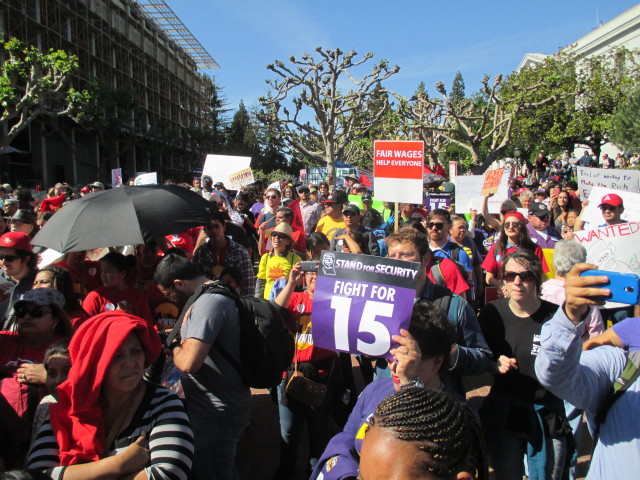
By Tim Redmond
APRIL 15, 2015 – Bernardo Montiel works for Jack in the Box. His job is in the city of Alameda, where there’s no strong minimum-wage ordinance. He makes about $9 an hour.
And some weeks, he only gets about 15 hours of work.
Think about that: Before taxes, Montiel takes home about $135 a week. Hard to live anywhere on that; impossible in the Bay Area. “It’s not even much to give my mom to help make ends meet,” Montiel said.
So he was up early this morning, and spoke to more than 100 people who crowded at 6am into a McDonalds at 24th and Mission to demand a $15-an-hour wage for fast-food workers.
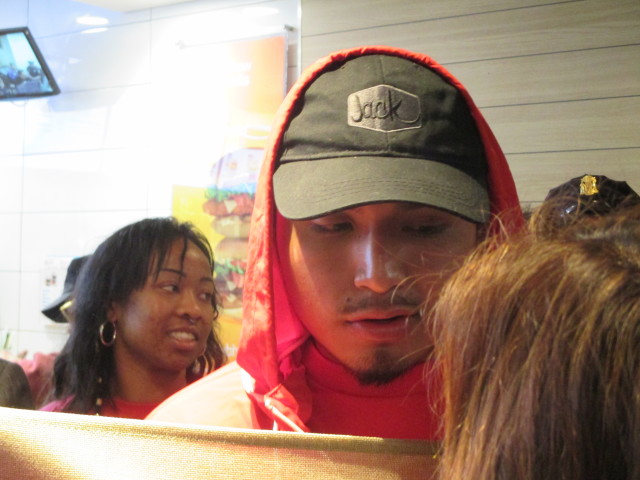
“Hold the burgers, hold the fries, make our wages supersize,” the union and community activists chanted.
The rally started in front of the restaurant, but the protesters soon moved inside, occupying almost every bit of space. A crew of police officers guarded the counter and tried to keep an aisle open for customers, but there weren’t many people coming in to buy food.
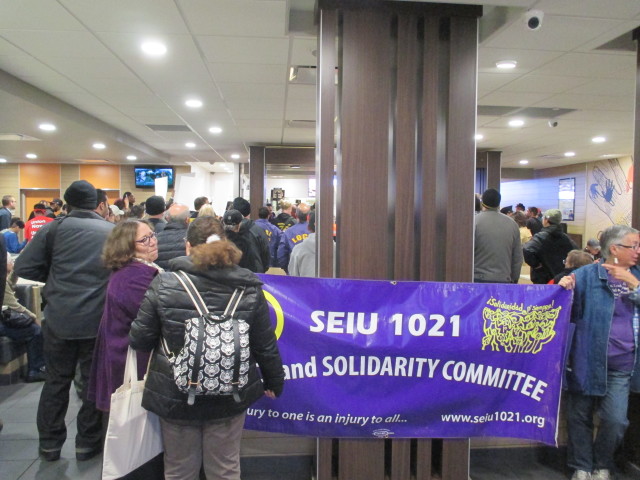
It was part of a national day of action to organize fast-food workers – some of the lowest-paid people in the country, many of whom have no benefits and completely unpredictable shifts.
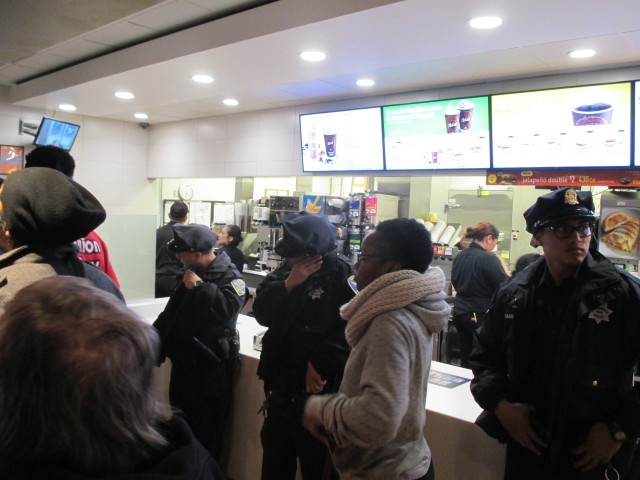
Oakland and San Francisco have raised the local minimum wage, and the workers at this McDonald’s will be getting $12.25 an hour shortly, with increases up to $15 over the next three years.
That’s barely a living wage in a city where the median rent is $3,500 for a one-bedroom apartment. But for many fast-food workers, a raise to $15 would make a big difference.
For Montiel, that would represent a pay hike of more than 60 percent.
Fast-food workers have been difficult to organize; the giant corporations that run McDonalds, Burger King, and Jack in the Box aren’t friendly to labor, to say the least. The workers are often in desperate need of a paycheck, and live with the threat of getting fired (or losing most of their shifts) at the whim of management.
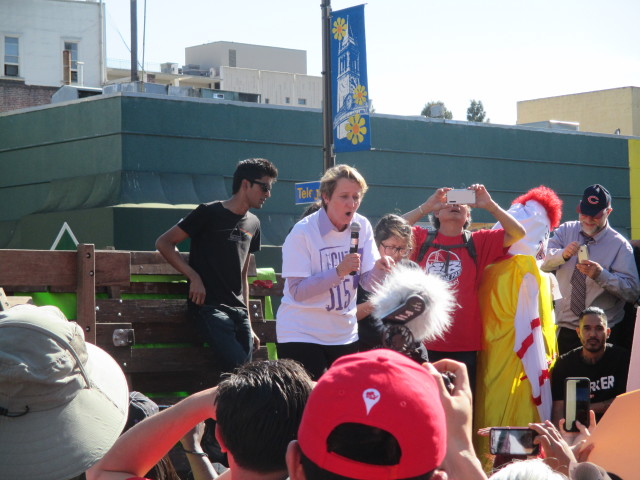
But hundreds of workers defied those odds and showed up in San Francisco and Berkeley today to protest. And unions from all over the Bay Area showed up to show solidarity.
It was a signal that the movement to organize fast-food workers – the chant was “$15 and a union” – is getting traction.
Noesha McGehee was one of them. She works at McDonalds in Oakland, earning the legal minimum $12.25 an hour, with no benefits and no health care. And although she wants to work more, she’s only given weekend shifts.
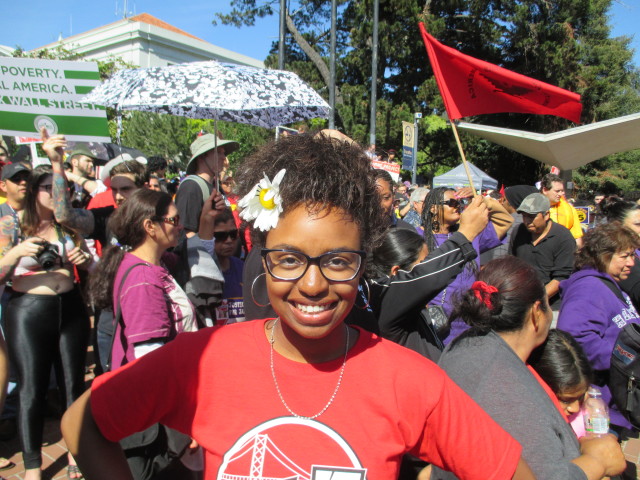
“It’s not enough to buy schoolbooks,” the 18-year-old Cal State East Bay student told me.
“Just because people work in fast food, they still deserve rights and respect, like all workers,” she said.
Similar rallies and marches in more than 140 US cities made this a dramatic event for labor – and perhaps an important step in an effort to bring workplace rights to more than 3 million low-paid workers in the fast-food industry.






